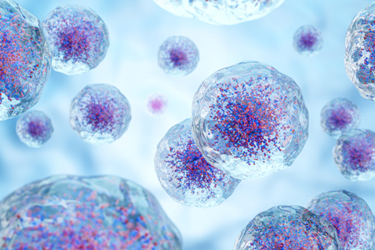Generation And Preclinical Applications Of Humanized Mouse Models To Study Human Immunity And Cancer Immunotherapy
By Julie Lang, PhD, Co-Director of the Pre-clinical Human Immune System Mice Core (PHISM)

By the engraftment of human hematopoietic stem cells (HSCs) and the reconstitution of a functional human immune system in an immunocompromised mouse, human immune system (HIS) mice are created. Humanized mice constitute a sophisticated preclinical model where the human immune system can be exposed to in vivo experimental and therapeutic manipulations, providing meaningful drug testing outcomes. HIS mice are increasingly utilized to understand human immune system development, immune responses to human-specific pathogens, effects of microbiomes on human immunity, and recent efficacies and mechanisms of combination immunotherapy treatments on human cancer.¹–⁹
Here, we show an automated experimental setup for human CD34+ HSC enrichment from umbilical cord blood for the successful generation of humanized mouse models. High HSC viability and purity are essential for successful engraftment and human immune system reconstitution in the absence of GVHD. CD34+ cells can be purified from human cord blood using MACS MicroBeads and the autoMACS® Pro Separator and then transplanted into immunodeficient mice to create powerful mouse models for in vivo preclinical evaluation of human immune responses. In addition, human tumors can be implanted in the flanks, orthotopically, or intravenously to also study human immune changes following cancer therapy.
We present two examples on the applications of HIS mice:
- Evaluating therapeutic efficacy of immune check point inhibitors on HIS mice engrafted with cell line–derived xenografts (CDX) or patient-derived xenografts (PDX)
- Understanding the effects of antibiotics on gut microbiome diversity in HIS mice
Get unlimited access to:
Enter your credentials below to log in. Not yet a member of Cell & Gene? Subscribe today.
